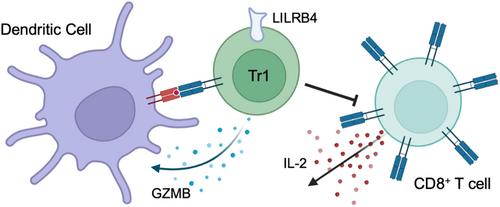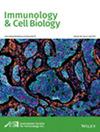不断扩展的 I 型调节性 T 细胞生物学:癌症免疫疗法中的新角色。
IF 3
4区 医学
Q3 CELL BIOLOGY
引用次数: 0
摘要
本文讨论的新发现表明,I型调节性T细胞(Tr1)可通过对抗肿瘤免疫反应施加强有力的调节控制,干扰小鼠体内癌症疫苗的疗效。本文章由计算机程序翻译,如有差异,请以英文原文为准。

The expanding universe of type I regulatory T cell biology: a new role in cancer immunotherapy
In this article, we discuss new findings which suggest that type I regulatory T (Tr1) cells can interfere with cancer vaccine efficacy in mice by exerting strong regulatory control over antitumor immune responses.
求助全文
通过发布文献求助,成功后即可免费获取论文全文。
去求助
来源期刊

Immunology & Cell Biology
医学-免疫学
CiteScore
7.50
自引率
2.50%
发文量
98
审稿时长
4-8 weeks
期刊介绍:
The Australasian Society for Immunology Incorporated (ASI) was created by the amalgamation in 1991 of the Australian Society for Immunology, formed in 1970, and the New Zealand Society for Immunology, formed in 1975. The aim of the Society is to encourage and support the discipline of immunology in the Australasian region. It is a broadly based Society, embracing clinical and experimental, cellular and molecular immunology in humans and animals. The Society provides a network for the exchange of information and for collaboration within Australia, New Zealand and overseas. ASI members have been prominent in advancing biological and medical research worldwide. We seek to encourage the study of immunology in Australia and New Zealand and are active in introducing young scientists to the discipline.
 求助内容:
求助内容: 应助结果提醒方式:
应助结果提醒方式:


